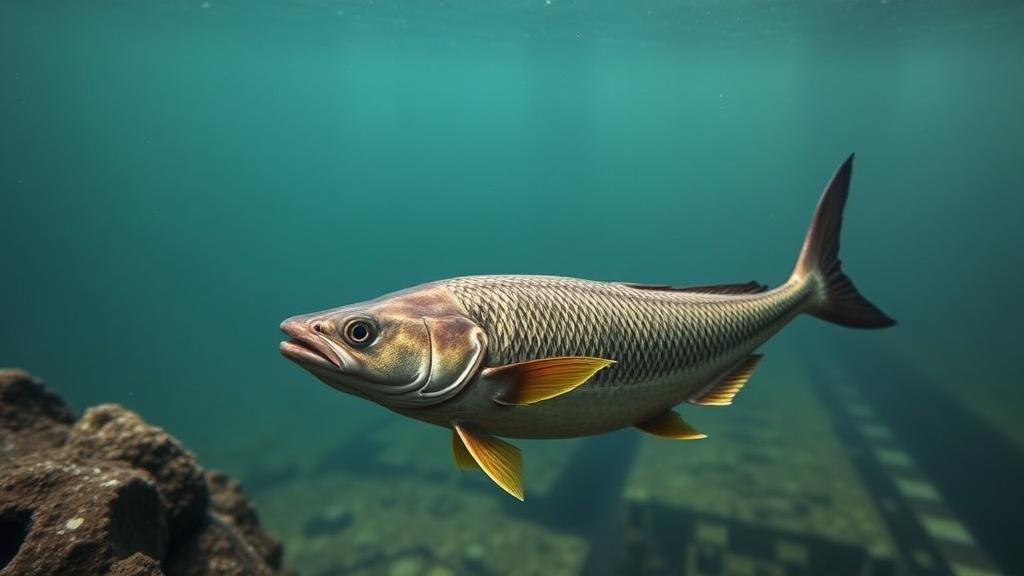Exploring ancient fisheries and their role in sustaining early marine cultures.
Exploring Ancient Fisheries and Their Role in Sustaining Early Marine Cultures
The study of ancient fisheries reveals significant insights into how early human societies relied on marine resources for sustenance, economic stability, and cultural development. This article delves into various ancient fishing practices, prominent locations, and the broader implications of these fisheries on the maritime cultures they supported.
The Importance of Fisheries in Ancient Societies
Throughout history, fisheries have played a crucial role in feeding populations, particularly in coastal areas. For example, the ancient Egyptians utilized the rich waters of the Nile Delta, where fisheries contributed significantly to their diet and economy as early as 3000 BCE. Similarly, the Pacific Northwest Indigenous peoples engaged in sustainable fishing practices that ensured their communities thrived for thousands of years.
Technological Innovations in Fishing
Technological advancements greatly influenced fishing practices among ancient cultures. The invention of fishing nets, traps, and tools allowed for more efficient catch rates. For example, the use of basket traps in ancient China around 2000 BCE enabled early fishers to capture various species without overexploiting their stocks.
- Nets: Many ancient civilizations, including the Greeks and Romans, developed sophisticated net designs that improved their ability to catch fish.
- Hooks and Lines: Early fish hooks made from bone, wood, or metal were utilized by cultures from the Mesolithic period onwards.
- Fish Weirs: Native American tribes employed stone structures to trap fish during spawning migrations, demonstrating sustainable practices.
Notable Ancient Fisheries Around the World
Several archaeological sites provide profound insights into ancient fisheries. e locations showcase the depth of human interaction with marine environments.
- Mesopotamia (circa 4000 BCE): The Tigris and Euphrates rivers were not only vital for irrigation but also hosted various fish species that fed the burgeoning agricultural civilizations.
- The Mediterranean Region: By 3000 BCE, cultures such as the Minoans demonstrated advanced fish trade networks, exporting dried fish across the Mediterranean.
- The Pacific Northwest (circa 5000 BCE): Indigenous tribes developed complex fisheries for salmon, which formed the backbone of their diets and economies.
Ecosystem Management and Sustainability
Ancient societies often practiced forms of ecological management long before modern sustainability concepts were articulated. For example, the ancient Romans implemented regulations on fishing seasons and methods to ensure the long-term viability of local stocks. Such practices underscore an understanding of marine ecology that was sophisticated for their time.
Also, in the Andean cultures, particularly around Lake Titicaca, the use of aquaculture facilitated the growth of fish alongside crops, illustrating an early form of integrated ecosystem management.
The Broader Cultural Impact of Fisheries
The significance of fisheries extends beyond sustenance; they shaped the cultural practices and social structures of communities. Fishing festivals, rituals, and mythology often centered around marine life demonstrate an intrinsic connection between people and their aquatic environments. For example, the Fishers Festival in the Mediterranean held religious and communal importance, celebrating successful catches and honoring marine deities.
Conclusion: Lessons from Ancient Fisheries
Exploring ancient fisheries provides a window into the resilience and adaptability of early marine cultures. Modern societies can glean valuable lessons from these historical practices, particularly regarding sustainability and resource management in the face of global environmental challenges.
As we strive to protect our oceans today, reflecting on the innovations, cultural significances, and ecological management practices of ancient fisheries offers a pathway toward more responsible marine stewardship.
Actionable Takeaways
- Engage in local sustainable fishing practices to preserve marine biodiversity.
- Advocate for policies that protect fishing habitats and promote responsible consumption.
- Explore your local cultural traditions related to fishing to understand the historical influences on modern practices.



